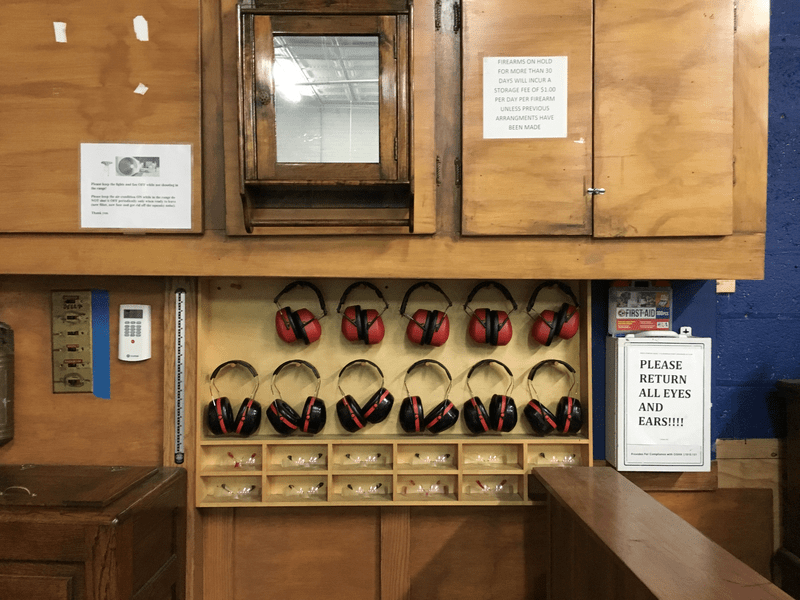
The entrance to the Seneca Sporting Range in Ridgewood, Queens is marked by a discreet sign, which sits above a gray door to a gray building. Nothing about the entrance says, come on in. But on one recent weeknight visit, the door was open and receiving visitors.
And that's where Angel Avila, a long-time member of the range, was ready for a conversation on handguns.
"When I first purchased a gun, I said, 'holy mackerel,'" said Avila, and added, "I just realized that this was a big responsibility."
He said he works full-time as an armed security guard — not saying where but only offering that he works under a federal contract — and wears a gun on his hip all day, plus transports it on the subway to and from work as he is licensed to do.
"I'm carrying a gun 14 hours a day," Avila said. "I'm dealing with the public. And you have to be totally, totally, totally in control."
In a nearly hour-long conversation, Avila stressed a sense of humility he says he feels about having a gun. He also noted that he passed extensive background checks, has undergone appropriate training and already has an armed guard license issued by the NYPD, allowing him to carry a gun all day on the job.
Why, then, he wonders, can he not carry a handgun out on the weekends to protect his family?
"Because I can't carry like that, I'm really defenseless against someone who's coming with a knife or gun," he said.
Avila has owned handguns as a personal hobby for about nine years, under what is known as a premise permit. This is the type of gun license most commonly issued to people applying for a gun in New York City, and it is the type of permit under scrutiny in the lawsuit headed to the Supreme Court. It's the high court's first gun rights case in nearly a decade.
New York City currently has more than 16,300 active premise licenses, according to the NYPD. The license allows people to have a gun licensed to a specific place, like a home. The gun-owner can only take the gun out for practice to one of seven firing ranges in New York City, such as Seneca Sporting Range. Otherwise, you can't take the gun anywhere, not even outside city limits.
"You know, the word Draconian is really overused but this is Draconian," said Tom King, president of the New York State Rifle and Pistol Association, an affiliate of the National Rifle Association, which is bringing the lawsuit against New York City along with three city residents.
King argued that licensed gun owners, who have gone through extensive background checks, should at least be able to transport their weapon outside the city if they choose to, for trainings or conferences. One of the plaintiffs in the lawsuit wanted to transport his city-licensed handgun to a second home outside the five boroughs. By law, he cannot.
"The gun laws that we have now in New York City, as I think you all would agree, have helped us reduce gun crimes to the lowest level since the 1950s," said James O'Neill, the police commissioner, at a press conference last month.
But Gary Hawkins, another patron of Seneca Sporting Range, said he keeps a gun at home because he doesn't always feel safe in his neighborhood of Jamaica.
"I can definitely fight, but these guys coming today got weapons," said Hawkins.
He said that he currently just wants to keep his gun at home. But Hawkins, who is black, said this desire may come from the idea that even if the law allowed to him to carry a weapon, being armed could incite confrontations with the police just because of his race.
"They might treat me differently, and they will probably," said Hawkins.
One man practicing at the range, Anthony Diaz, said he sympathized with the NYPD's efforts to reduce gun violence. Diaz himself is a retired NYPD detective, who served on the force for 30 years. But he credited safer streets with a high level of police work, not necessarily with the city's rules on handguns.
As a retired member of the NYPD, Diaz is licensed to carry a concealed weapon. Someone like Avila, is not.
"The police department limits carry permits because they want to control the guns in New York City," Avila lamented.
But that is a sentiment likely not in dispute by the NYPD, which contends it must keep a tight reign over how many guns it issues to the public.
